Easy Empathy —
I can be a sympathetic person, but I find empathy difficult.
I am capable of empathy, especially toward those I can relate too, like the children in the Strong4Life ads. Having been ridiculed for my weight as a child, it didn’t take much to imagine what it must feel like to be a fat kid in Georgia exposed to such public humiliation.
Because I was able to sympathize with fat kids in Georgia, I knew we needed to do something and decided to confront the problem head on. Having been on the receiving end of criticism, I found myself empathizing with the child who might pass Bobby’s shame face every day on the way to school, knowing that a body like mine (in my distorted perception) was the subject of ridicule and shame. But that kind of empathy is easy.
It doesn’t take much to empathize with those who share similar life experiences. It’s also easy to empathize with those who you share a positive relationship with, even if you may not share a common lived experience. Your interest in the well-being of those you care about creates the space for empathy to work. By virtue of my caring, I allow myself to adopt their point of view in order to strengthen my own point of view.
I can do “easy empathy.” When I’m asked to look at a particular issue from a particular perspective, my psychological investment is relatively light. I can attempt to imagine that person’s perspective without requiring any major mental or emotional commitment.
Where I struggle to empathize is when I am asked to see how my words and actions affect other people. I consider this hard empathy, and I suck at it.
I’ve spent a lifetime irritating and pissing off people because of various flaws in my character that affect influence the way I interact with others. Most people find me difficult to take because I’m sort of a raw, unvarnished social misfit who tramples over the unwritten rules that ensure public stability and serenity.
Some people have no problem with social misfits like me, and appreciate the fact that although I’m highly flawed, I’m also consistent, honest and understanding. Because I realize I don’t meet the high expectations of others, I keep my expectations of others low as well.
But some assume that because I’m a social misfit, because I’m a repeat fuck-up, I have no interest in improving myself. Of course, the people who portray me as willfully ignorant or chronically clueless are also the ones who never stick around for the aftermath, when I’m attempting to understand, and correct, my mistakes.
These are the same people who, when a fresh fuck-up arises, rally around their contempt for me and my work, and add the latest transgression to my long list of crimes, which will be presented to the Hague upon my extradition.
Some of these people have been disgusted and/or angry with me since I first entered the Fatosphere in June 2009, so when one of these bi-annual fuck-ups takes place, they’re like the first responders who are there to remind everyone that they’ve been warning everyone about me since God knows when.
So, when I receive what I view as unjustified criticism, I get defensive. It has become second nature for me to attempt to explain why I said what I said, or did what I did, because I know that immediately following the criticism will come the detractors who will leverage my offense for further proof of why I don’t belong in Fat Acceptance.
That was what I attempted to do in response to what I perceived as an inaccurate account of my interaction with Julia Starkey. That post did not address the overall content of the letter, although, as I have repeatedly said, I agree that Fat Acceptance has become a segregated movement which seems to place a higher value on white activists.
So, because I addressed the part that involved me, rather than the over-arching message of the NOLOSE letter, people accused me of derailing the conversation and making it all about me. I can’t argue with that criticism. I did respond to NOLOSE by defending myself, and because of that my initial response was called “repulsive” and I earned the title of “unrepentant racist.”
Of course, I wrote my defense to shield myself from accusations of racism because I felt like NOLOSE was suggesting a racial motivation where I felt there was none. My fear of being labeled a racist, therefore, led to others labeling me a racist.
I am not a bigot. However, I am your stereotypical white person who has little experience learning about, or discussing, racial issues because of my privilege. So, my reaction to suggestions of racial motivation was to deny that motivation, deny the racist implications, rather than understand (or empathize with) why the accusation was made in the first place. As a result, I now realize that I sounded an awful lot like Father Ted in trying to prove my non-racism.
Since then, I’ve spoken with several people about how I can better understand what happened, how I should have responded and how I can respond better the next time this happens. I’ve also asked for resources to learn more, and people have generously shared some great ones with me.
Almost everything I have taken in this week on the subject is in video form because I simply don’t have the time to read at this moment. However, because of the nature of my job, I can put a video on and watch/listen while I do my work.
For example, Pattie Thomas sent me a link to the Center for Building a Culture of Empathy and its video series on empathy, featuring members of the Oakland Peacekeepers who were protesting the death of Oscar Grant, a young black man who was shot in the back by police while he was handcuffed and prone.
I’m so glad Pattie sent me these videos first, because the messages they shared were exactly what I needed to hear, particularly from Reverend Mutima Imani, Social Justice Minister, Faces of the East Bay. Her conversation was segmented, but one segment that moved me in particular was this one:
Imani explains how much of the tension between police and the black community is due to a mutual lack of empathy: the police aren’t empathetic to the social conditions that people live in and members of the black community are not empathetic to the police’s responsibility and what they are there for.
I had always thought of police brutality and excessive force as primarily a problem of racism and inequality, which is no doubt a major contributor to abuse of power. But to hear Reverand Imani describe it, a more important contributor may be the lack of mutual empathy, which creates a vacuum between the two groups where mistrust and hostility can thrive.
Recently, I heard a story on NPR which is prime example of someone successfully advocating for mutual empathy between the police and POCs. Civil rights attorney Connie Rice, cousin of Condoleezza, began working for the NAACP Legal Defense Fund in 1991, just prior to the Rodney King verdict and subsequent riots. Rice became a ruthless advocate for a more empathetic police force:
For years, civil rights attorney Constance Rice says, she would wake up every morning trying to figure out new ways to sue the Los Angeles Police Department into policing minority communities more fairly.
Of course, the LAPD still has major issues, but Rice advanced the cause of mutual empathy that has led to significant improvements over the King-era LAPD. Her cause has improved to the point where the LAPD stopped seeing Rice as a threat to their power and began treating her as a key ally in fostering a more understanding relationship between the police and the POC community.
There is still plenty of work to be done, but Rice’s work is just one example of how “enemies” can bridge the gap of empathy and begin working toward concrete solutions.
Another example of unexpected empathy came from the example of Eric Butler, a Restorative Justice Councilor for Oakland youth:
Butler shares the story of his experience as a Katrina refugee, which epitomized the absence of empathy that the government has toward POC communities. When Kanye West said that George Bush doesn’t care about black people, it was easy to understand his frustration and anger. To witness the inaction that led to so many unnecessary deaths, that conclusion feels completely valid.
However, Butler shares how in the aftermath of Katrina, despite the personal tragedies he endured, he empathized with the government and their response.
When I heard him say this, I was even more astonished than when I heard Kanye West’s comment. With West, I was astonished that he had the courage to say what he did on live, national television. With Butler, I was astonished because here was a man who lived through the consequences of government inaction and still found a place in his heart to try and understand the reasons behind that inaction.
After hearing this, I realized that if he could empathize with the government in spite of their ineptitude, then what excuse did I have for not empathizing with NOLOSE?
Because although I agreed with the issues raised in the letter, I was too angered by the perceived misrepresentation to reflect upon the letter as a whole.
Had I been building my empathy muscles prior to this, I might not have responded so quickly, or so myopically, to NOLOSE. Had I been prepared to do some hard empathy in response to those I perceived as hostile to my efforts, I might have responded differently.
But empathizing with critics is hard, especially when you live in fear of the next fuck-up that leads to the next public call-out that leads to the next item on my list of transgressions.
And so, in an attempt to exercise my empathy muscles, I have been watching more videos to expand my understanding, and Kristen Dunn shared a great video by Jay Smooth on discussing race.
Jay Smooth speaks to the fear of being called racist, which I discussed above. The current atmosphere makes the accusation of racist behavior so reprehensible and so troubling that we go out of our way to dispute those claims in an attempt to assure people that we aren’t racist.
He uses a great metaphor (and I love a great metaphor) about how we think of racism as something akin to having tonsils, and that when someone accuses us of racism, that we can say, “Oh no, I had my prejudice removed in 2005.”
Jay Smooth suggests that we think of racism more like plaque that builds up on our teeth, and that we must be vigilant in cleaning our teeth to prevent that prejudice from building up.
The current all-or-nothing view of racism that many people ascribe to contributes to a culture of fear surrounding the discussion of racism. Being afraid of the accusation of racist behavior (as I was) prevents us from having those difficult conversations, which make us vulnerable to criticism.
We should not fear that criticism because it is an opportunity to better ourselves, something that others have commented on in this discussion, but which I found difficult to understand because of that fear. But one thing that Jay Smooth said which struck me powerfully was, “The belief that you must be perfect in order to be good is an obstacle to being as good as you can be.”
I am absolutely terrified of fucking up this conversation and saying something wrong and being called out. I don’t want others to perceive me as a bigot, so I, like so many others, avoid the conversation all together because of the perceived pitfalls inherent to the discussion.
But if we do not make those mistakes, if we do not fuck up, then we will never learn how to advance beyond that fearful stage and onto productive, meaningful conversations.
In another video, Jay Smooth explains how this fear often manifests itself into a conflict between a “what we did” conversation and a “who we are” conversation. Now, in my first post, I confronted the “what I did” conversation by disputing the facts of what NOLOSE said I did, but it quickly devolved into a “who I am” conversation. As a result, I now see how unproductive these discussions are to the aim of dismantling personal, and institutional, racism, which is something I will bear in mind for future conversations.
Finally, Katherine Koba shared an amazing one-hour lecture on white privilege by Tim Wise, which then led me to a two-hour lecture at Villanova by Wise called “Between Barack and a Hard Place: Challenging Racism, Privilege and Denial in the Age of Obama.”
I don’t even think I can summarize everything I learned from these two incredible lectures. They inspired me to dig deeper into this subject and to learn more, while furthering my understanding that fear of this conversation leads to inaction and a perpetuation of the status quo.
And the thing is, as respected as Wise’s anti-racism work is, there are still people, like a radio host called Gus T. Renegade, who call Wise a racist and a white supremacist, and yet Wise has the confidence to continue discussing the issues with those critics, returning as a guest on Renegade’s show multiple times.
So, after one week of challenging myself to learn more, I’ve come to appreciate NOLOSE, and many of my critics, a bit more. I’m still licking my wounds and I’m still fearful of the missteps I will no doubt make as I continue to expand my understanding, but I am less afraid of the consequences of those missteps. And, hopefully, I will be less likely to respond in a kneejerk fashion.
All that being said, this week has left me wondering one thing in particular: what are we, as the Fat Acceptance community, doing to address the inclusivity and diversity issue? Because this division of interests and division of activism is ultimately leaving us all weaker in this fight. It would seem that now is the ideal time to begin building bridges, as per Pattie’s brilliant recommendations, and to find common ground for a stronger, more robust community of fat activists that can address the multitude of problems out there.
So, are there groups that are addressing race and Fat Acceptance specifically? Are there projects that are working to improve diversity and inclusivity? If so, I would love to know about them. And if not, what can we do to begin addressing this issue throughout the community of Fat Activists?
Thoughts?




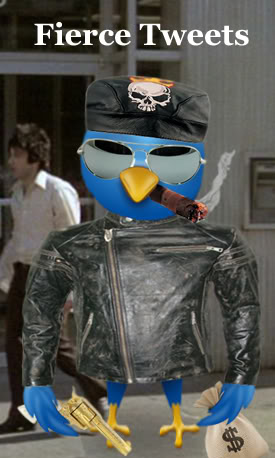
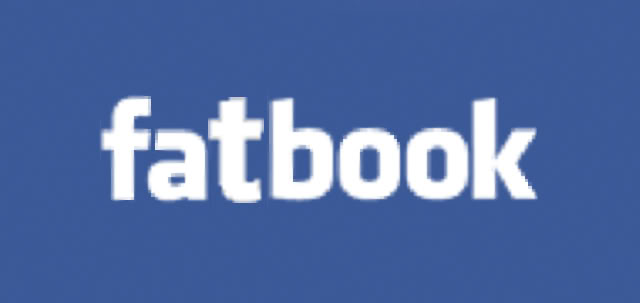
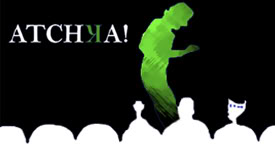

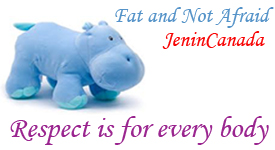

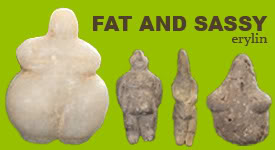
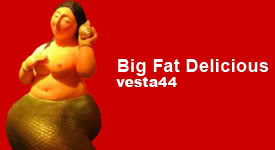


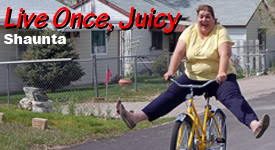
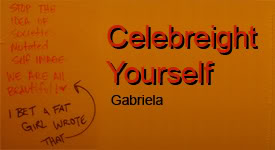
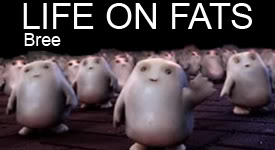



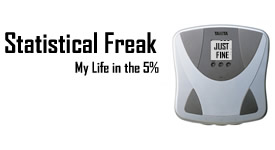
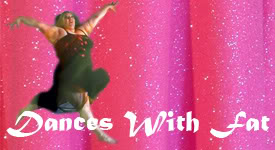
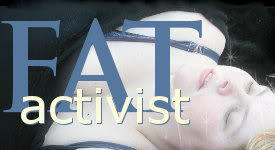
Shannon - I really respect all the hard work and introspection you have clearly been doing. As a trauma survivor, I have been doing a lot of personal work surrounding empathy and boundaries. I wanted to recommend a book to you - “Boundaries: When to Say YES, When to Say NO, To Take Control of Your Life” by Henry Cloud and John Townsend. Yes the title is a little (or a lot) lame. Also I will warn that it is a Christian-themed book, but the advice in it was broad (and wise) enough that an agnostic pagan-ish individual like myself didn’t feel preached to.
We get angry and defensive when we feel our boundaries have been violated. It doesn’t matter if it was done intentionally or not, we feel attacked and are forced into “fight or flight” mode. When it comes to perceived boundary violations, you are clearly a “fight” kind of person. I myself am more often a “flight” type who will shut down or leave a situation that upsets me. Both responses are completely understandable. Strengthening your “empathy muscle” as you put it (and your understanding of your boundaries), can help you come out the other side of your immediate emotional response and into a more realistic place. Basically, you increase your awareness in order to unclench from the defensive position that inhibits growth. Sorry if this sounds armchair-psychology-ish but when you’re in therapy for as many years as me you manage to pick up a few things lol…
Here is a little empathy 101 trick I learned from my counselor:
Whenever people talk about empathy, think of your toe. Imagine I hurt my toe. I tell you “My toe hurts!” You do not have to understand my toe pain. You have no way of knowing how my toe actually feels. At that point, all I’m asking you to do is acknowledge my pain. I don’t want you to tell me about your toe, or someone else’s toe. I probably don’t even want to hear what I should do for the pain, and the *last* thing I want to hear from you is that my toe doesn’t hurt. Just say “I”m sorry your toe hurts.” Then I will feel a little better because you have shown that you care, and I will calm down a little and we can continue to discuss my toe - but just having the pain recognized has already taken it away a little. Now if I say “My toe hurts because you stepped on it you jerk!” you can again say “I’m sorry your toe hurts. I did not mean to step on it.” You don’t have to get down and kiss it, as long as I know you weren’t being malicious and that you are willing to try not to do it again…
well, you see how the metaphor works right?
Empathy doesn’t always mean *understanding* someone’s pain…sometimes the first step is just realizing that they are in pain. And if you care about the pain of others, you are an empathetic person.
I like the ‘what I did’ / ‘who I am’ distinction. Sometimes ‘what I did’ shows me to be all too fallible, impatient, hasty, whatever. ‘Who I am’ is a person who want to keep learning, keep trying, and keep doing better.
Thanks for this, Shannon.
The metaphor about plaque on one’s teeth is the first thing I’ve really understood in this entire debate. I don’t like to use my Asperger’s as an excuse, but there are some times when it really does affect me. Aspies are so prone to have fight or flight reactions to everyday social interaction that when an interaction is so loaded with fear and the possibility of getting savaged before one even opens one’s mouth … well.
I can do my best to appreciate the viewpoint of people like NOLOSE. But until this culture of fear is dealt with, I just can’t. I don’t think it’s unreasonable to want to have a dialogue with someone without the implication that they will vilify you as a person if you put a foot wrong. So many people do make that leap from ‘what you did’ to ‘what you are’, and I think you put it well that you can deal with the first, but not with the second. Even neurotypical people struggle with this conversation, but it’s worse for us. It just is.
I might be able to sit down with someone face to face and discuss this - especially when I have more clues to belief and state of mind than just words on a page - but I am not equipped to have this conversation online.